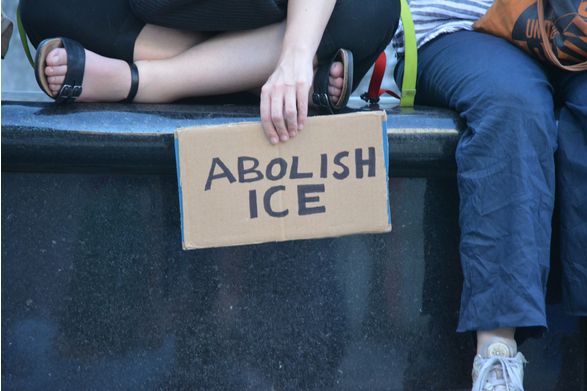The Atlantic’s Derek Thompson recalls that family, religion, and patriotism used to be “the holy trinity of American traditionalism."
But there has been a sea change among the young. Thompson writes:
In 1998, the Wall Street Journal and NBC News asked several hundred young Americans to name their most important values. Work ethic led the way—naturally. After that, large majorities picked patriotism, religion, and having children.
Twenty-one years later, the same pollsters asked the same questions of today’s 18-38-year-olds—members of the Millennial and Z Generations. The results, published last week in the Wall Street Journal, showed a major value shift among young adults.
Today’s respondents were 10 percentage points less likely to value having children and 20 points less likely to highly prize patriotism or religion.
The nuclear family, religious fealty, and national pride—family, God, and country—are a holy trinity of American traditionalism. The fact that allegiance to all three is in precipitous decline tells us something important about the evolution of the American identity.
Interestingly, a recent study of working-class men (“The Tenuous Attachments of Working-Class Men”) found the same kind of detachment from work, family, and religion. The study was conducted by academics at Princeton and Johns Hopkins. Marriage rates and religious affiliation seem to be connected:
[M]any poor working-class men now eschew the nuclear family, in their own way. Their marriage rates have declined in lockstep with their church attendance. But the authors note that a number of these men were eager to have close relationships with their children, even when they had little relationship with the mother. While many of them had given up on romance, they saw opportunities to have relationships with their kids as a way of fixing their own mistakes, thus giving back to their communities “in ways that they believe[d] can make the world a better place.”
This desire for a relationship with children seems to stem not from a determination to form the next generation but on the neediness of the parents. But at the same time, this yearning is a stunted recognition of the importance of the family.
While Thompson presents compelling data, his conclusion is bizarre:
The ends of Millennials and Gen-Z are similarly traditional. The NBC/WSJ poll found that, for all their institutional skepticism, this group was more likely than Gen-Xers to value “community involvement” and more likely than all older groups to prize “tolerance for others.”
This is not the picture of a generation that has fallen into hopelessness, but rather a group that is focused on building solidarity with other victims of economic and social injustice.
Younger generations have been the force behind equality movements like #BlackLivesMatter, #MeToo, #AbolishICE, and Medicare for All, not only because they’re liberal, and not only because they have the technological savvy to organize across the Internet, but also because their experience in this economy makes them exquisitely sensitive to institutional abuses of power, and doubly eager to correct it.
What Americans young and old are abandoning is not so much the promise of family, faith, and national pride, but the trust that America’s existing institutions can be relied on to provide for them.
Mindless campaigns to abolish ICE, promote unaffordable social programs (Medicare for All) are not the answer. And, by the way, Black Lives Matter is not an “equality movement.” Just try saying that All Lives Matter at the next BLM rally and see what happens.
A better explanation for the alienation from the trinity (family, religion, and patriotism) is that elites have abandoned these old values and that there has been a trickle-down effect.
Charles Murray argued in Coming Apart that poor communities have been ravaged by an epidemic of children born out of wedlock, but that the affluent, with their sophisticated ideas, refuse to be judgmental about this. Nobody is willing to stand up and say how difficult it is to bring up children in a single-parentafamily.
This wholesale refusal to stand up for valuable institutions can't help but affect the young and old alike.
As for the decline of religious affiliation, Rob Henderson made this point in an op-ed in the New York Post headlined “Luxury Beliefs Are the Latest Status Symbols for Rich Americans”:
Members of the upper class are most likely to be atheists or non-religious. But they have the resources and access to thrive without the unifying social edifice of religion.
Places of worship are often essential for the social fabric of poor communities. Denigrating the importance of religion harms the poor. While affluent people often find meaning in their work, most Americans do not have the luxury of a “profession.” They have jobs. They clock in, they clock out. Without a family or community to care for, such a job can feel meaningless.
Call me stodgy, but I don’t see joining the Abolish Ice movement as a substitute for family, country, and some kind of spiritual orientation.


